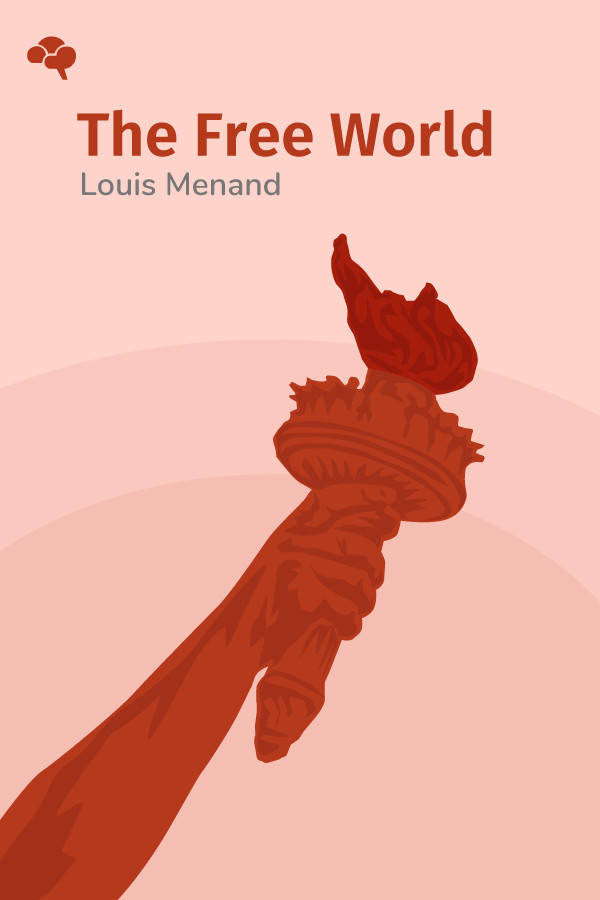Louis Menand
Louis Menand (/ˈluːi məˈnɑːnd/; born January 21, 1952) is an American critic, essayist, and professor, best known for his Pulitzer-winning book The Metaphysical Club (2001), an intellectual and cultural history of late 19th and early 20th century America.
Menand was born in Syracuse, New York, and raised around Boston, Massachusetts. His mother, Catherine (Shults) Menand, was a historian, who wrote a biography of Samuel Adams. His father, Louis Menand III, taught political science at the Massachusetts Institute of Technology. His grandfather and great-grandfather owned the Louis Menand House, located in Menands, New York, and listed on the National Register of Historic Places in 1985. The village of Menands is named after his great-grandfather, a 19th-century horticulturalist.
A 1973 graduate of Pomona College, Menand attended Harvard Law School for one year (1973–1974) before he left to earn MA (1975) and PhD (1980) degrees in English from Columbia University.
He thereafter taught at Princeton University and held staff positions at The New York Review of Books (contributing editor 1994–2001) and The New Republic (associate editor 1986–1987). He has contributed to The New Yorker since 1991 and remains a staff writer. In 1988 he was appointed a Distinguished Professor of English at the Graduate Center of the City University of New York, and in 1990 he was awarded a Guggenheim Fellowship. He left CUNY to accept a post in the English Department at Harvard University in 2003. He has also taught at Columbia, Queens College, the University of Virginia School of Law.
He published his first book, Discovering Modernism: T. S. Eliot and His Context, in 1987. His second book, The Metaphysical Club: A Story of Ideas in America (2001), includes detailed biographical material on Oliver Wendell Holmes, Jr., William James, Charles Sanders Peirce, and John Dewey, and documents their roles in the development of the philosophy of pragmatism. It received the 2002 Pulitzer Prize for History, the 2002 Francis Parkman Prize, and The Heartland Prize for Non-Fiction. In 2002 Menand published American Studies, a collection of essays on prominent figures in American culture.
He is the Anne T. and Robert M. Bass Professor of English at Harvard. In 2018 he was appointed for a 5-year term to the Lee Simpkins Family professorship of Arts and Sciences. His principal field of academic interest is 19th and 20th century American cultural history. He teaches literary theory and postwar cultural history at both the graduate and undergraduate level. At Harvard he helped co-found a freshman course with content in literature and philosophy, Humanities 10: An Introductory Humanities Colloquium. He also served as co-chair on the Task Force on General Education at Harvard working on a new general education curriculum.
In consultation with the National Endowment for the Humanities, President Barack Obama awarded him the National Humanities Medal in 2015.
The Free World: Art and Thought in the Cold War
Louis Menand, author of Pulitzer-Prize-winning The Metaphysical Club, is also a professor of English at Harvard and an esteemed essayist and critic. President Barack Obama awarded him the National Humanities Medal. In this book, he highlights how Cold War culture was shaped as he gives glimpses into the lives of cultural icons, bringing to light many of the ironies within the Cold War and dismantling the perceived identities of the artists and thinkers who became big names in the mid-to-late 20th century. Culture in the free world was formed through collaboration and resistance and by people with many different and opposing ideas, but with a shared cause: freedom of expression. Menand artfully portrays how thinkers and artists became the most effective advocates and voices for freedom, despite creating during a time of creative and intellectual repression.
Bio information sourced from Wikipedia

